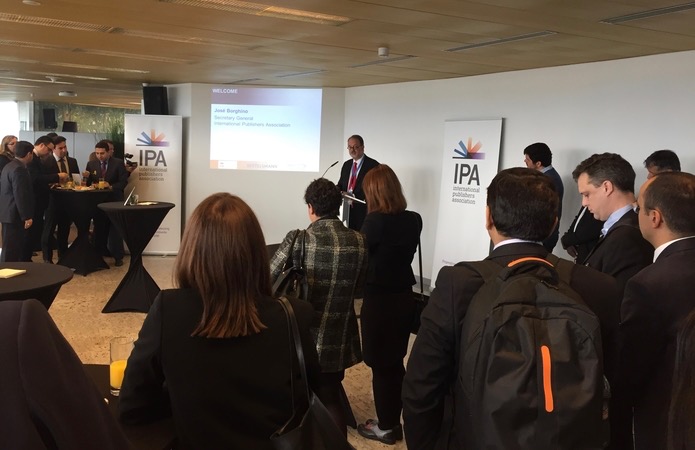He said their decisions ‘can make a positive impact on the lives of the millions of citizens out there who are in different countries struggling with different issues’, and that copyright ‘impacts the lives of every person’.
‘I hope that we will be able to move towards something that is constructive, something that is useful not just from the government perspective, but from the human perspective … the connection of what we do here with the lives of those people will become a lot more apparent than it is now, will become a lot more positive than it is right now, and I believe that’s the spirit in which we should work,’ he said.
The inference – intended or otherwise – is that the SCCR has a duty to put the greater good before self-interest and other less noble considerations.
Despite this, most of the delegates then stated again that an international instrument is the wrong approach, while pockets of the Global South want it. By the same token, content owners don’t see the point, while librarians and archivists vehemently do. It’s hard to see a way through this impasse, and indeed the Chair’s greatest task now will be to map such a route.
As I mentioned yesterday, the IPA, the FEP and Bertelsmann staged a lunchtime event where educational publishers from four countries showed off a range of innovative teaching resources they have developed. Here’s the press release for details.
It’s no exaggeration to say the event was a runaway success. Admittedly, there was a brief moment of panic when news reached us that the delegation groupings had hastily arranged coordination meetings at 1300 – our start time – but with some deft juggling we delayed enough to allow them – our core target audience – to arrive. And arrive they did, along with a number of the WIPO top brass and the SCCR chairman himself.
Later on, when opening the afternoon plenary, Mr Tang said: ‘During the lunch break I had a chance to be with the International Publishers Association, and we saw presentations by four very dynamic educational publishers from the world. Seeing their work and hearing what they are doing, they are really impacting the lives of their communities, and I think that it would be remiss of us to not take this opportunity as a group and as a committee to see how we can work towards supporting not just them but the many, many others in your country who are trying to do similar things.’
I swear we didn’t ask him to say this.
Tang then moved things on to ‘limitations and exceptions for educational and research institutions and for persons with other disabilities’, which is where the different civil society groups usually bare their teeth.
One no-nonsense intervention came from Mike Holderness, who chairs the International Federation of Journalists (IFJ) Authors’ Rights Expert Group. Mike made a very sharp statement back in November, which I reported in full here.
He said today: ‘The International Federation of Journalists deeply regrets that educational and research institutions are underfunded. No one is proposing, however, as far as I’m aware, that schools and colleges should get free electricity or free phone calls. Here, most clearly of all, the solution is collective licensing through collective management organizations that are democratically controlled by the rights holders they represent.’
The International Authors Forum then chimed in with its own common-sense contribution:
‘There are individual authors whose rights are involved in all countries. Those rights must be given primary consideration; they need fair remuneration if they are to continue the work everybody wants access to. Without payment, they will not be able to continue to create, the diversity and quality of content will suffer and the quantity of works produced will be limited. We believe that there are already international copyright provisions in place that work well to enable the development of licensing frameworks, which enable access, including cross-border access provision through educational institutions and ensure fair payment. Authors believe that these existing provisions contain sufficient flexibility for countries represented at WIPO to continue to work towards national solutions, such as licensing frameworks, which can be developed according to local needs.’
Representing the ‘other side’, however, the representative of the American University’s Program on Information Justice and Intellectual Property (committed to spreading US-style fair use) said:
‘Chair, you and I are both from countries that have educational exceptions that are open in the sense they’re open to the use of any kind of work protected by copyright. They’re open for any education-related activity or purpose, and they’re open to use by any user, not just restricted to, for instance, teachers or educational institutions, and these rights are subject to a fairness test that makes sure the authors and the rights holders are protected within these kind of uses.’
So far, so reasonable. But then he added: ‘This openness in the exceptions environment is part of what enables innovations, the kind of innovations that we heard at the meeting today about access to learning materials through new technologies and over the internet.’
Come again? The suggestion that it is copyright exceptions that are enabling educational publishers to innovate is, in a word, hogwash. Plainly, educational publishers can only make heavy investments in new technology and teaching resources thanks to effective copyright that incentivizes and rewards creators and provides enduring financial security.

